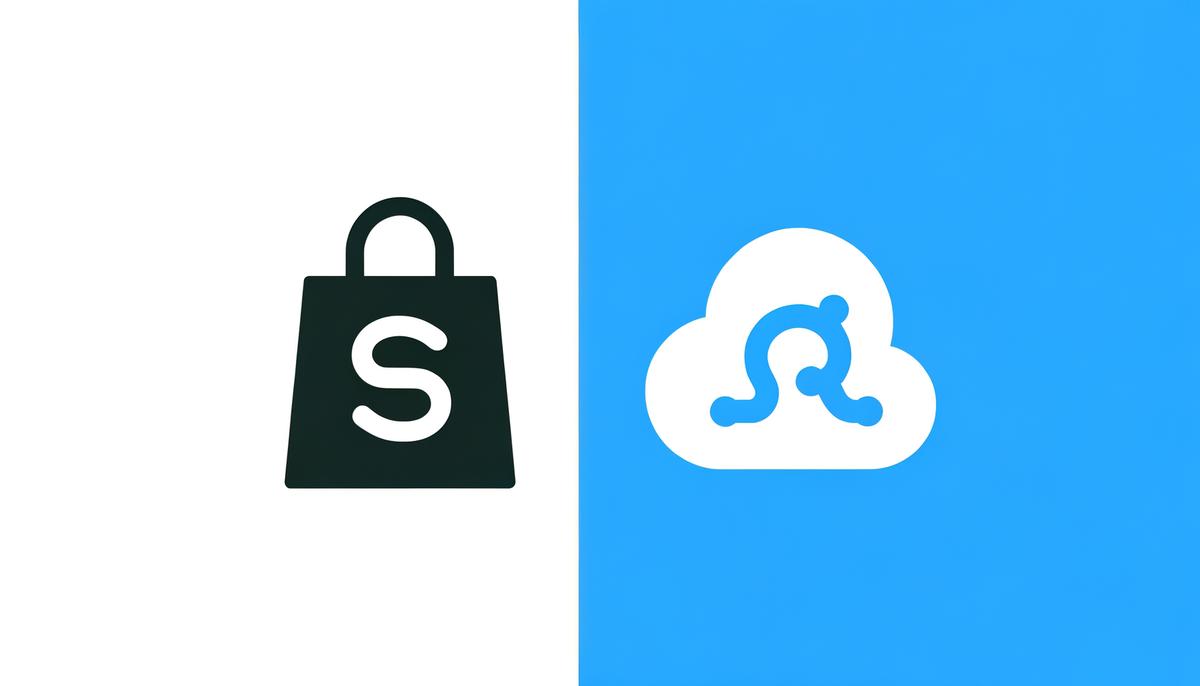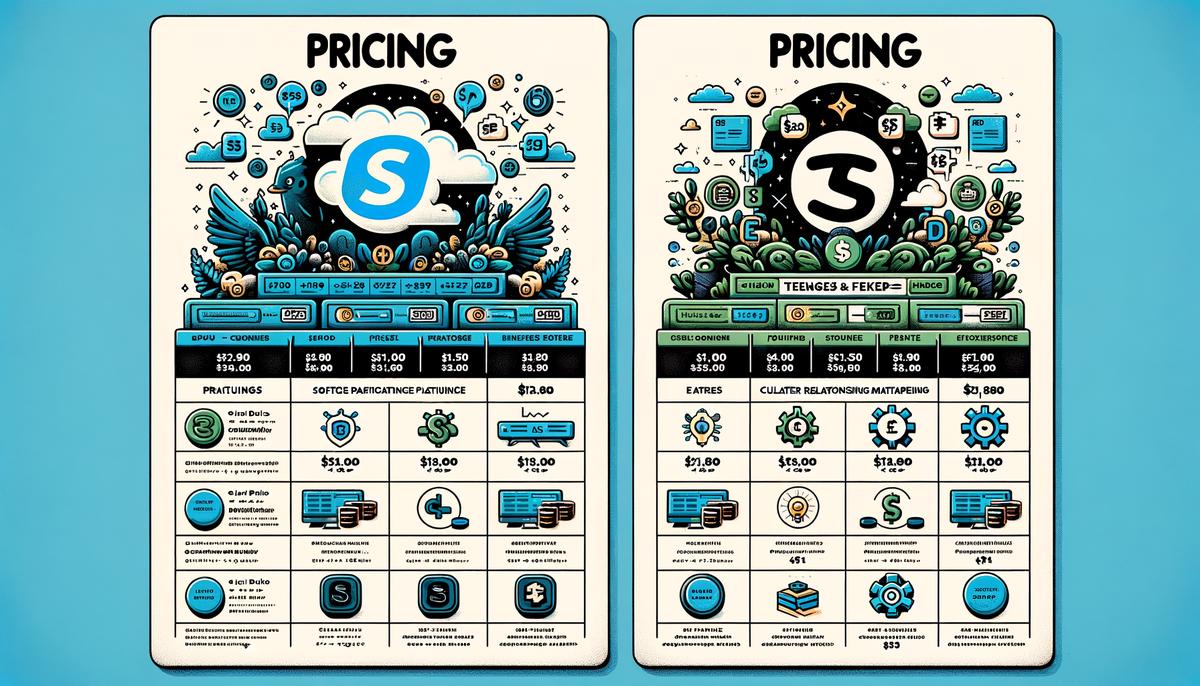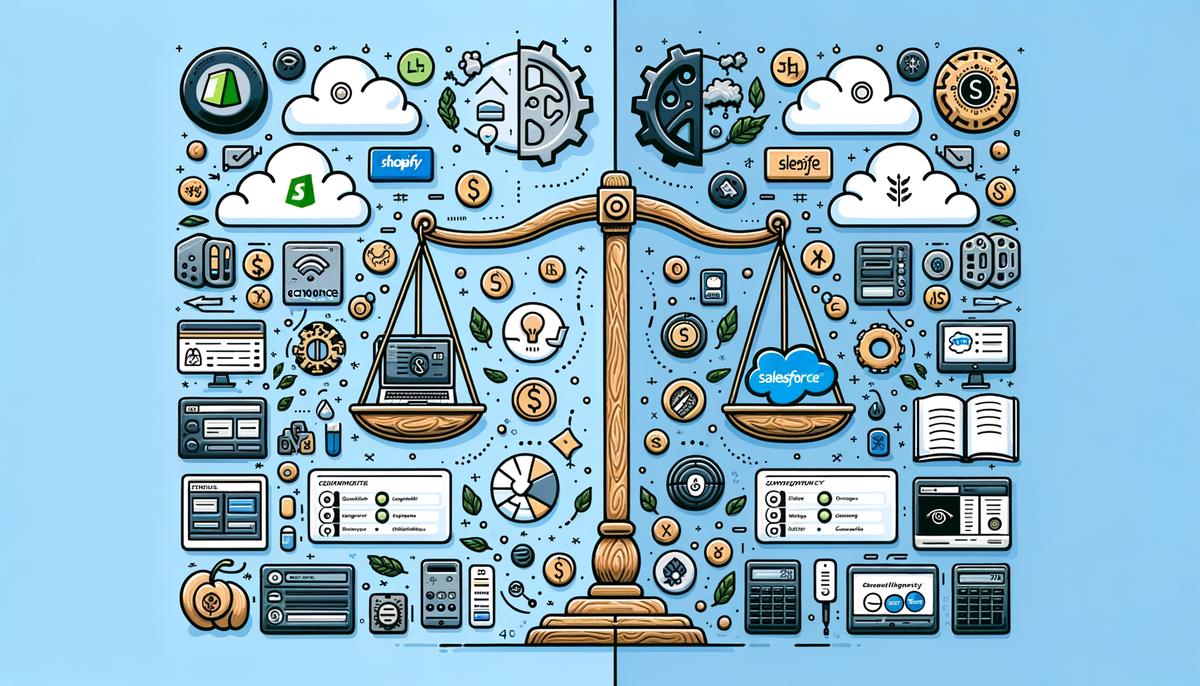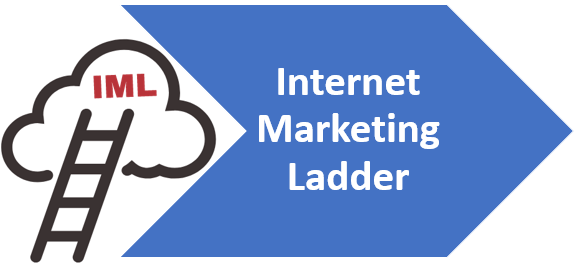Shopify vs Salesforce: The Ultimate Guide for IT Users
Explore Shopify vs Salesforce features, pricing, and scalability. Our in-depth comparison helps IT pros choose the best platform for their needs.
In the ever-evolving landscape of digital commerce and customer relationship management, two titans stand out: Shopify and Salesforce. For IT users navigating the complex world of e-commerce platforms and CRM solutions, understanding the nuances between these powerhouses is crucial. This comprehensive guide will delve deep into the Shopify vs Salesforce debate, offering invaluable insights for those at the helm of digital transformation in their organizations.
Introduction: The Battle of the Platforms
In one corner, we have Shopify, the darling of the e-commerce world, known for its user-friendly interface and robust selling tools. In the other, Salesforce, the CRM giant that’s revolutionized how businesses manage customer relationships. But which platform reigns supreme for IT users? The answer isn’t as straightforward as you might think.
As we navigate through 2024, the choice between Shopify and Salesforce has become more critical than ever. With e-commerce sales skyrocketing and customer data becoming the new currency, selecting the right platform can make or break your digital strategy. This guide will dissect both platforms, examining their strengths, weaknesses, and ideal use cases to help you make an informed decision.
Shopify vs Salesforce: Core Functionalities
Shopify: The E-commerce Powerhouse
Shopify has carved out its niche as the go-to platform for businesses looking to establish a strong online presence. Its core functionalities include:
- User-Friendly Store Builder: With drag-and-drop interfaces and customizable templates, even those with minimal technical skills can create stunning online stores.
- Inventory Management: Robust tools for tracking stock levels, managing orders, and syncing across multiple sales channels.
- Payment Processing: Integrated payment solutions, including Shopify Payments, streamline transactions and reduce friction in the checkout process.
- Marketing Tools: Built-in SEO features, email marketing integrations, and social media selling capabilities to boost your online visibility.
Salesforce: The CRM Giant
Salesforce, on the other hand, focuses on optimizing customer relationships and sales processes:
- 360-Degree Customer View: Comprehensive profiles that aggregate data from multiple touchpoints, providing a holistic view of each customer.
- Sales Automation: Tools to streamline the sales process, from lead generation to closing deals.
- Marketing Cloud: Sophisticated marketing automation features for personalized customer journeys.
- Analytics and Reporting: Advanced AI-powered insights to make data-driven decisions.

E-commerce Capabilities: A Deep Dive
When it comes to e-commerce capabilities, Shopify is often seen as the frontrunner. However, Salesforce Commerce Cloud offers a compelling alternative for enterprise-level businesses.
Shopify’s E-commerce Prowess
Shopify excels in providing a comprehensive, end-to-end solution for online selling:
- Scalability: From small businesses to enterprise-level operations, Shopify offers plans that grow with your business.
- App Ecosystem: The Shopify App Store boasts thousands of integrations to extend functionality.
- Omnichannel Selling: Seamlessly sell across multiple channels, including social media platforms and marketplaces.
- Mobile Optimization: All Shopify themes are mobile-responsive, ensuring a smooth shopping experience on any device.
Salesforce Commerce Cloud
While not as widely known for e-commerce, Salesforce’s offering is robust:
- B2B and B2C Capabilities: Tailored solutions for both business-to-business and business-to-consumer models.
- AI-Powered Personalization: Einstein AI offers product recommendations and personalized shopping experiences.
- Global Scale: Built to handle high-volume transactions across multiple currencies and languages.
- Seamless CRM Integration: Naturally integrates with Salesforce’s CRM for a unified customer view.
CRM Efficiency: Salesforce’s Domain
When it comes to Customer Relationship Management, Salesforce is often considered the gold standard:
- Customization: Highly adaptable to specific business needs across various industries.
- Automation: Workflow automation tools to streamline repetitive tasks and processes.
- Integration Capabilities: Extensive API support for seamless integration with other business systems.
- Mobile CRM: Robust mobile apps for on-the-go access to customer data and sales tools.
Shopify’s CRM Features
While not primarily a CRM platform, Shopify offers basic customer management features:
- Customer Profiles: Basic information tracking for shoppers.
- Order History: Easily accessible purchase records for each customer.
- Segmentation: Basic customer grouping for targeted marketing efforts.
Customization and Integration: Tailoring Your Digital Ecosystem
Both Shopify and Salesforce offer extensive customization options and integration capabilities, but their approaches differ significantly.
Shopify’s Approach to Customization
Shopify’s strength lies in its simplicity and ease of use, even when it comes to customization:
- Theme Customization: A wide range of themes with point-and-click customization options.
- Liquid Template Language: For more advanced customizations, developers can use Shopify’s proprietary Liquid language.
- API Access: RESTful APIs allow for deep integrations and custom app development.
Salesforce’s Customization Power
Salesforce is renowned for its flexibility and extensive customization options:
- Lightning Platform: A low-code platform for building custom applications.
- Apex: A proprietary programming language for creating complex business logic.
- Visualforce: A framework for creating custom user interfaces.
Integration Capabilities
Both platforms offer robust integration options:
Shopify Integrations
- App Store: Over 6,000 apps covering everything from accounting to marketing.
- API-First Approach: Well-documented APIs for custom integrations.
- Webhooks: Real-time data synchronization with external systems.
Salesforce Integrations
- AppExchange: A vast marketplace of pre-built integrations and applications.
- Mulesoft: Salesforce’s integration platform for connecting disparate systems.
- Heroku: For building and deploying custom applications that integrate with Salesforce.
Pricing and Scalability: Investing in Growth

Understanding the pricing models and scalability options of Shopify and Salesforce is crucial for IT users planning for long-term growth.
Shopify’s Pricing Structure
Shopify offers tiered pricing plans designed to accommodate businesses of all sizes:
- Basic Shopify: $29/month
- Ideal for new ecommerce businesses
- Includes basic reports and 2 staff accounts
- Shopify: $79/month
- Professional reports and 5 staff accounts
- Lower transaction fees
- Advanced Shopify: $299/month
- Advanced report builder and 15 staff accounts
- Lowest transaction fees
- Shopify Plus: Custom pricing
- Enterprise-grade solutions for high-volume merchants
- Dedicated support and customization options
Salesforce’s Pricing Model
Salesforce’s pricing is more complex, based on products and user licenses:
- Essentials: $25/user/month
- For small teams up to 10 users
- Basic sales and support functionality
- Professional: $75/user/month
- Complete CRM for any size team
- Includes marketing automation
- Enterprise: $150/user/month
- Deeply customizable CRM for large businesses
- Advanced analytics and workflow automation
- Unlimited: $300/user/month
- Unlimited CRM power and support
- Access to Salesforce’s most advanced features
Scalability Considerations
- Shopify: Easily scales from a single product store to multi-million dollar operations. The platform grows with your business, allowing for easy upgrades between plans.
- Salesforce: Offers enterprise-level scalability, capable of handling millions of records and complex business processes. However, scaling can be more complex and may require significant customization.
Customer Support and Community: Empowering Users
The level of support and community resources can significantly impact the success of platform adoption and ongoing use.
Shopify’s Support Ecosystem
Shopify prides itself on comprehensive support options:
- 24/7 Support: Available via phone, email, and live chat
- Shopify Help Center: Extensive documentation and tutorials
- Shopify Community: Active forums for peer-to-peer support
- Shopify Partners: A network of experts for hire
Salesforce’s Support Network
Salesforce offers tiered support options and a vast community:
- Standard Support: Included with all plans, offers basic assistance
- Premier Support: Faster response times and developer support
- Trailblazer Community: A robust platform for learning and peer support
- Trailhead: Free online learning platform for Salesforce skills

Security and Compliance: Protecting Your Digital Assets
For IT users, security and compliance are paramount concerns when choosing between Shopify and Salesforce.
Shopify’s Security Measures
- PCI DSS Compliance: Level 1 PCI DSS compliant for secure payment processing
- SSL Encryption: Free SSL certificates for all stores
- Fraud Analysis: Built-in fraud detection tools
- Regular Security Updates: Automatic platform updates to address vulnerabilities
Salesforce’s Security Framework
- Trust.salesforce.com: Transparent real-time system performance and security information
- Shield: Enhanced security and monitoring tools for sensitive data
- Field Audit Trail: Track data changes over time for compliance purposes
- Encryption at Rest: Protect sensitive data stored in the Salesforce platform
Analytics and Reporting: Data-Driven Decision Making
Both platforms offer robust analytics and reporting capabilities, essential for IT users looking to drive strategic decisions.
Shopify Analytics
- Real-time Dashboard: Overview of sales, orders, and visitor traffic
- Product Reports: Insights into best-selling products and inventory levels
- Customer Reports: Analyze customer behavior and purchasing patterns
- Marketing Reports: Track the effectiveness of marketing campaigns
Salesforce Analytics
- Salesforce Einstein: AI-powered analytics for predictive insights
- Custom Report Builder: Create tailored reports for specific business needs
- Dashboards: Visual representations of key performance indicators
- Salesforce Einstein Analytics: Advanced analytics platform for deep data exploration
Mobile Capabilities: Managing on the Go
In today’s mobile-first world, the ability to manage your e-commerce or CRM system on the go is crucial.
Shopify’s Mobile Apps
- Shopify Mobile: Manage your store, process orders, and view analytics
- Shopify POS: Turn any mobile device into a point-of-sale system
- Ping: Mobile messaging app for customer communications
Salesforce Mobile
- Salesforce Mobile App: Access CRM data, update records, and manage tasks
- Field Service Lightning: Mobile app for field service management
- Salesforce Inbox: Integrate CRM data with email on mobile devices
API and Developer Tools: Extending Functionality
For IT users looking to customize and extend platform capabilities, API access and developer tools are essential.
Shopify’s Developer Ecosystem
- Shopify API: RESTful API for integrating with external systems
- GraphQL API: For more efficient data querying
- Shopify CLI: Command-line tool for app development
- Theme Kit: CLI tool for theme development and customization
Salesforce’s Development Platform
- Salesforce DX: Integrated development environment for building Salesforce apps
- Heroku: Cloud platform for building and deploying custom applications
- Force.com IDE: Eclipse-based IDE for Salesforce development
- Salesforce CLI: Command-line interface for Salesforce development
Key Takeaways: Shopify vs Salesforce
- Core Focus: Shopify excels in e-commerce, while Salesforce dominates in CRM.
- Ease of Use: Shopify offers a more user-friendly interface for quick setup, while Salesforce provides deeper customization options.
- Scalability: Both platforms scale well, but Salesforce offers more robust options for enterprise-level businesses.
- Integration: Shopify’s App Store and Salesforce’s AppExchange provide extensive integration options.
- Pricing: Shopify’s pricing is more straightforward, while Salesforce’s model is more complex but offers greater flexibility.
- Support: Both platforms provide comprehensive support, with Salesforce offering more advanced options for enterprise clients.
- Analytics: Salesforce leads in advanced analytics and AI-driven insights, while Shopify offers solid e-commerce-focused reporting.
- Mobile Capabilities: Both platforms offer robust mobile apps for on-the-go management.
- Developer Tools: Salesforce provides a more comprehensive development ecosystem, while Shopify offers simpler tools for e-commerce customization.
- Security: Both platforms prioritize security, with Salesforce offering more advanced options for sensitive data management.

FAQ: Shopify vs Salesforce
- Q: Which platform is better for small businesses, Shopify or Salesforce? A: For small businesses primarily focused on e-commerce, Shopify is often the better choice due to its ease of use and lower entry costs. However, if customer relationship management is a priority, Salesforce’s Essentials plan can be a good starting point.
- Q: Can Shopify handle B2B sales like Salesforce? A: While Shopify is primarily geared towards B2C sales, it does offer B2B functionality through its Shopify Plus plan and various apps. However, Salesforce’s B2B capabilities are generally more robust and customizable.
- Q: Is it possible to use both Shopify and Salesforce together? A: Yes, many businesses use Shopify for their e-commerce operations and Salesforce for CRM. There are integration tools available to sync data between the two platforms.
- Q: Which platform offers better analytics, Shopify or Salesforce? A: Salesforce generally offers more advanced analytics capabilities, especially with its Einstein Analytics platform. However, Shopify’s analytics are well-suited for e-commerce-specific insights.
- Q: How do the customization options compare between Shopify and Salesforce? A: Salesforce offers more extensive customization options, especially for complex business processes. Shopify’s customization is more focused on store design and e-commerce functionality.
- Q: Which platform has better mobile capabilities? A: Both platforms offer robust mobile apps, but their focus differs. Shopify’s mobile capabilities are geared towards managing an online store, while Salesforce’s mobile app is designed for CRM tasks and field sales.
- Q: How does the pricing compare between Shopify and Salesforce? A: Shopify’s pricing is generally more straightforward and lower cost, especially for smaller businesses. Salesforce’s pricing can be more complex and typically higher, but it offers more extensive features, especially at the enterprise level.
- Q: Which platform is easier to learn and use? A: Shopify is generally considered easier to learn and use, especially for those new to e-commerce. Salesforce has a steeper learning curve but offers more powerful features for those willing to invest the time.
- Q: How do the security features compare between Shopify and Salesforce? A: Both platforms offer robust security features. Shopify focuses on e-commerce security, including PCI compliance, while Salesforce provides more advanced security options for sensitive data management, especially useful for industries with strict compliance requirements.
- Q: Can Shopify handle large-scale enterprises like Salesforce? A: While Shopify Plus can handle large-scale e-commerce operations, Salesforce is generally better equipped for complex, large-scale enterprise needs, especially when it comes to CRM and cross-departmental functionality.
By thoroughly understanding the strengths and limitations of both Shopify and Salesforce, IT users can make an informed decision that aligns with their organization’s specific needs and long-term goals. Whether prioritizing e-commerce functionality, CRM capabilities, or a balance of both, the choice between these platforms will significantly impact your digital strategy and business growth in this year and beyond.
Related Posts:







